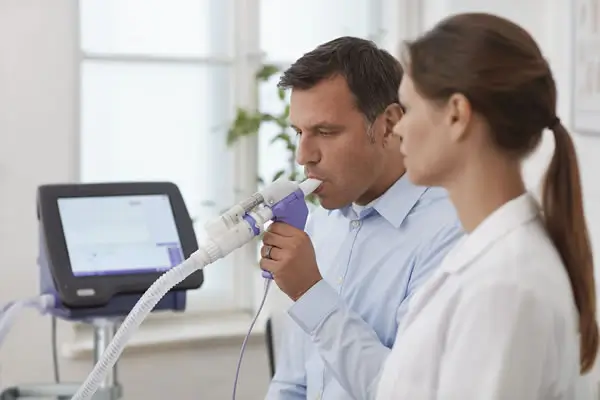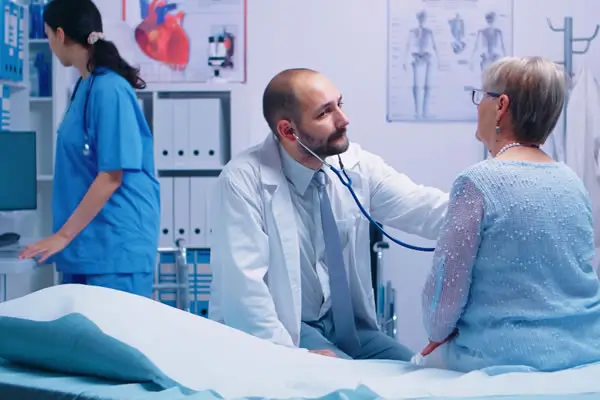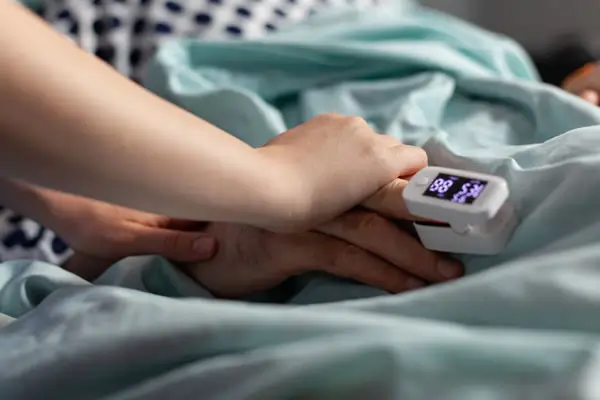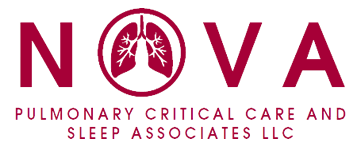What is Acute Respiratory Distress Syndrome (ARDS)
Acute Respiratory Distress Syndrome (ARDS) is a severe and potentially life-threatening lung condition characterized by rapid onset of widespread inflammation in the lungs. This inflammation leads to increased permeability of the tiny air sacs in the lungs, called alveoli, causing fluid to leak into the lungs’ airspaces. As a result, oxygen levels in the bloodstream drop, leading to respiratory failure and difficulty breathing.
ARDS is typically triggered by an underlying illness or injury, such as:
- Sepsis: A severe infection that spreads throughout the body.
- Pneumonia: Inflammation of the lungs caused by an infection.
- Trauma: Direct injury to the chest or lungs, such as from a car accident or near-drowning.
- Aspiration: Inhaling vomit, saliva, or other substances into the lungs.
- Pancreatitis: Inflammation of the pancreas that can lead to lung complications.
- Inhalation injury: Breathing in smoke, chemicals, or other harmful substances.
- Drug overdose: Certain drugs or medications can cause lung injury leading to ARDS.
The hallmark symptoms of ARDS include severe shortness of breath, rapid breathing, and low oxygen levels in the blood, often requiring mechanical ventilation to support breathing. Other symptoms may include rapid heart rate, confusion, and fatigue.
Treatment for ARDS typically involves supportive care in an intensive care unit (ICU), including mechanical ventilation to assist breathing, oxygen therapy to maintain adequate oxygen levels, and medications to reduce inflammation and manage underlying causes such as infections. In severe cases, therapies such as extracorporeal membrane oxygenation (ECMO) may be used to provide temporary support to the heart and lungs.
Despite advances in medical care, ARDS remains a serious condition with a high mortality rate, particularly in cases of severe lung injury. However, with prompt diagnosis, appropriate treatment, and supportive care, many individuals with ARDS can recover, although recovery may be slow and may involve ongoing rehabilitation.




Office Locations
Conveniently located near you in Loudoun and Fairfax VA
NOVA Pulmonary – Dulles
24430 Stone Springs Boulevard
Suite 200
Dulles, VA 20166
NOVA Pulmonary – Lansdowne
19415 Deerfield Avenue
Suite 301
Landsdowne, VA 20176
Meet the team at NOVA Pulmonary Critical Care and Sleep Associates

Dr. Aditya N Dubey, M.D, F.C.C.P. – Founder
Specialty:
Pulmonary, Critical Care and Sleep Medicine
Board Certified by American Board of Internal Medicine in the Subspecialities of Pulmonary Medicine, Critical Care Medicine and Sleep Medicine. Learn more about Dr. Dubey

Dr. Petra Thomas, M.D.
Specialty:
Pulmonary Medicine
Board Certified by American Board of Internal Medicine in the Subspecialities of Pulmonary Medicine. Learn more about Dr. Thomas

Dr. Arman Murabia, M.D.
Specialty:
Pulmonary, Critical Care and Sleep Medicine
Board Certified by American Board of Internal Medicine in the Subspecialities of Pulmonary Medicine, Critical Care Medicine and Sleep Medicine. Learn more about Dr. Murabia

Rebekah Lee, AGNP-C
Nurse Practitioner. Learn more about Rebekah Lee

Christine Amorosi, AGNP-C
Nurse Practitioner. Learn more about Christine Amorosie
